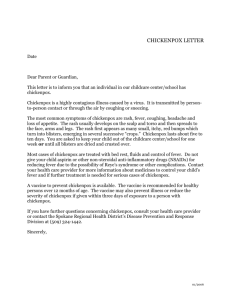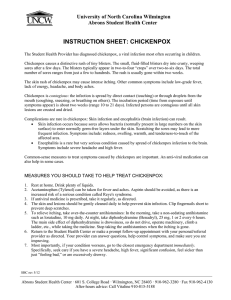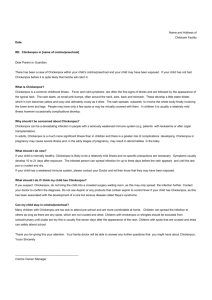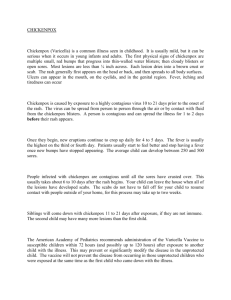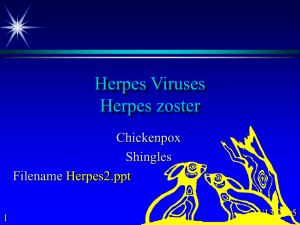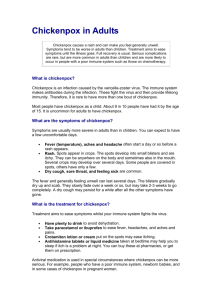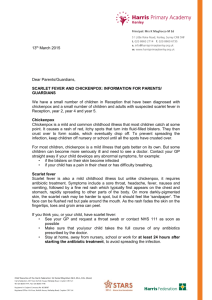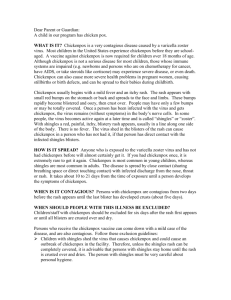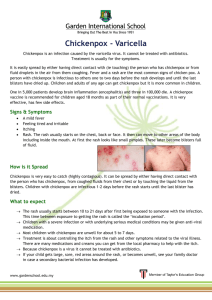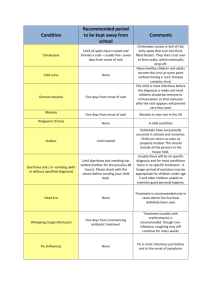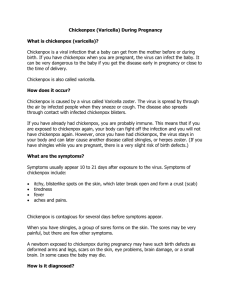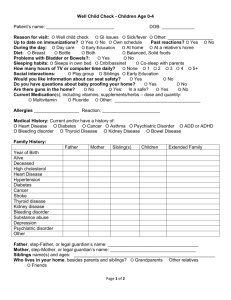Chicken Pox Information - Debbie`s Little Angels
advertisement
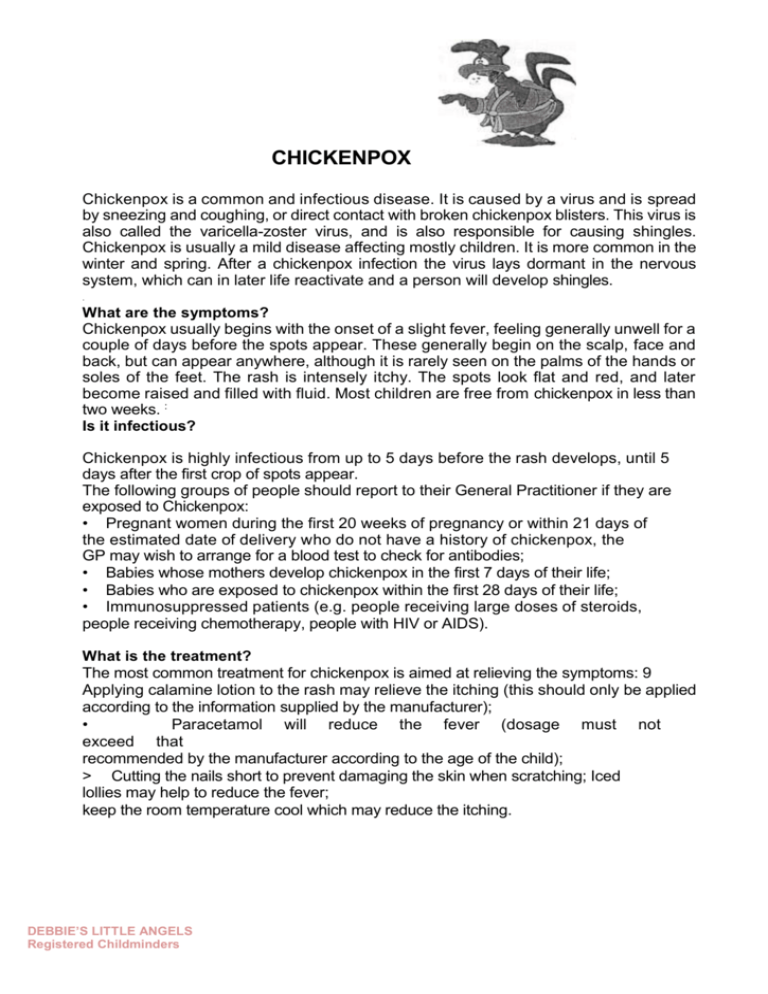
CHICKENPOX Chickenpox is a common and infectious disease. It is caused by a virus and is spread by sneezing and coughing, or direct contact with broken chickenpox blisters. This virus is also called the varicella-zoster virus, and is also responsible for causing shingles. Chickenpox is usually a mild disease affecting mostly children. It is more common in the winter and spring. After a chickenpox infection the virus lays dormant in the nervous system, which can in later life reactivate and a person will develop shingles. . What are the symptoms? Chickenpox usually begins with the onset of a slight fever, feeling generally unwell for a couple of days before the spots appear. These generally begin on the scalp, face and back, but can appear anywhere, although it is rarely seen on the palms of the hands or soles of the feet. The rash is intensely itchy. The spots look flat and red, and later become raised and filled with fluid. Most children are free from chickenpox in less than two weeks. : Is it infectious? Chickenpox is highly infectious from up to 5 days before the rash develops, until 5 days after the first crop of spots appear. The following groups of people should report to their General Practitioner if they are exposed to Chickenpox: • Pregnant women during the first 20 weeks of pregnancy or within 21 days of the estimated date of delivery who do not have a history of chickenpox, the GP may wish to arrange for a blood test to check for antibodies; • Babies whose mothers develop chickenpox in the first 7 days of their life; • Babies who are exposed to chickenpox within the first 28 days of their life; • Immunosuppressed patients (e.g. people receiving large doses of steroids, people receiving chemotherapy, people with HIV or AIDS). What is the treatment? The most common treatment for chickenpox is aimed at relieving the symptoms: 9 Applying calamine lotion to the rash may relieve the itching (this should only be applied according to the information supplied by the manufacturer); • Paracetamol will reduce the fever (dosage must not exceed that recommended by the manufacturer according to the age of the child); > Cutting the nails short to prevent damaging the skin when scratching; Iced lollies may help to reduce the fever; keep the room temperature cool which may reduce the itching. DEBBIE’S LITTLE ANGELS Registered Childminders Are there any complications? The majority of people affected by chickenpox suffer no long-term effects: • There is an increased risk that you could develop shingles later in life due to the virus remaining dormant in the body and reactivating ; • Bacterial infections can arise if the blistered areas become contaminated with bacteria; • Very occasionally chickenpox infection causes pneumonia, which presents as a persistent high fever and a severe dry cough; • Very rarely it can lead to a condition called encephalitis, this is an inflammation of the brain which can occur between 7-10 days after the onset of the rash, this is very rare, and would present with symptoms of drowsiness, headache, neck stiffness, dislike of bright lights and possibly convulsions. How can I stop Chickenpox spreading to others? • By keeping the child at home until 5 days after the first appearance of the rash, it is not necessary for all the skin lesions to have formed dry crusts/scabs before the child returns to school; • By avoiding contact with susceptible people; • Encouraging child to cough into a tissue; • Implementing good basic hygiene measures e.g. hand washing. Do I need to visit my General Practitioner? If your child has chickenpox with the symptoms as described in this fact sheet there is no requirement to routinely visit your General Practitioner. Chickenpox is a self limiting illness for most children and most will be completely better within a two week. period. Taking the child to a busy doctor's surgery increases the risk of further spread of the virus, and there is no magical treatment other than that available at your local pharmacy to relieve symptoms. It is worth recording that a child has had chickenpox on their immunisation record sheet. A useful source of information in this instance is NHS Direct. They can be contacted via their website at: http://www.nhsdirect.nhs.uk NHS Direct will be able to give information and advice and can be contacted by telephone on: 0845 4647 DEBBIE’S LITTLE ANGELS Registered Childminders
